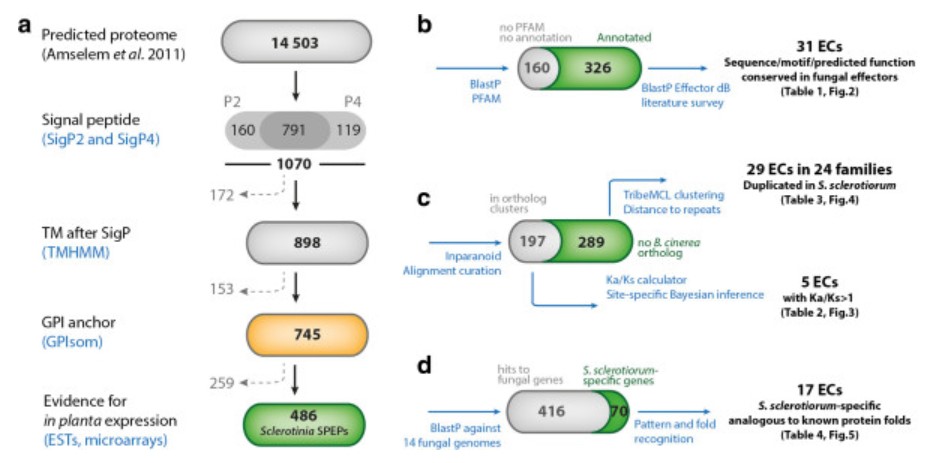During the interaction between plants and pathogenic fungi, the pathogenic fungi import secreted proteins into plant tissues mainly through the secretory system. These proteins interact immunologically with plant-related proteins that have a defense but should. Secreted proteins play an important role in achieving plant infestation by pathogenic fungi, colonizing cells, and causing damage to plants. Secretory proteins are synthesized inside cells and then secreted outside cells. As a very important class of bioactive molecules, they play an important role in many physiological and pathological processes, such as cell signaling, apoptosis, development, and defense of organisms.
Lifeasible uses secretomes technology to help customers study the composition, expression levels, expression changes, and modification status of cellular secretory proteins at a holistic level and analyze the interactions between secretory proteins and the regulation of secretory proteins.
 Figure 1. S . sclerotiorum secretome prediction and analysis pipeline. (Guyon K, et al., 2014)
Figure 1. S . sclerotiorum secretome prediction and analysis pipeline. (Guyon K, et al., 2014)
Lifeasible works on differential proteome expression during plant-fungal interactions to help customers understand the mechanisms of plant fungal infestation. As your trusted partner, we can meet all your fungal secretome analysis needs and provide you with efficient and high-quality services. If you want to know the details, please contact us.
Reference
Lifeasible has established a one-stop service platform for plants. In addition to obtaining customized solutions for plant genetic engineering, customers can also conduct follow-up analysis and research on plants through our analysis platform. The analytical services we provide include but are not limited to the following:
Get Latest Lifeasible News and Updates Directly to Your Inbox